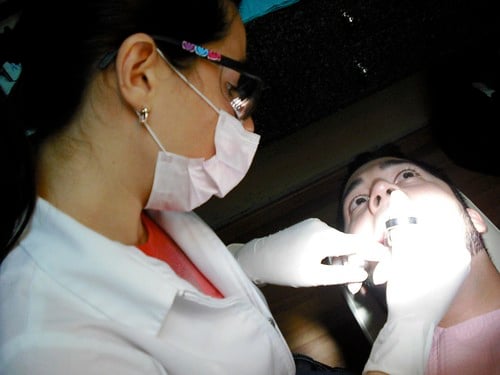Some people may not realize it, but their oral and dental health mirrors their overall health. It also reflects their personal hygiene, lifestyle, and their regard for their dental health’s value. Having a good smile is one thing, but knowing that your dental practice can protect you from the risks of acquiring chronic diseases is another. Equal importance should be given to all components of personal hygiene by performing sanitary practices that could improve your overall health, prevent the spread of diseases, and impact your appearance.
To maintain healthy teeth and gums, regular and consistent dental routines should be executed. There are multiple ways to take care of your teeth and gums, as advised by Toothology Dental Care in Scottsdale, AZ, yet several people have mistaken notions about proper dental care. With these tips below, misconceptions can be corrected and you can take care of your teeth the right way.
Brush off and floss plaque from your teeth
The first and foremost tip to maintain your dental health is to brush your teeth twice a day. With a whole day of doing activities such as eating, drinking, talking, or even unnoticeably biting into foreign objects, you need to brush off plaque that could potentially lead to worse problems.
Plaque, the transparent film that coats the teeth, is packed with anaerobic bacteria that can spread without needing the presence of oxygen. Combating it with toothpaste is the best response, as toothpaste is mainly composed of fluoride responsible for removing plaque and preventing cavity buildup. As an alternative, it is also suggested that you could also use baking soda instead of your regular toothpaste.
Brushing your teeth should last from 2 to 3 minutes to ensure that it is thoroughly cleaned. Make sure to reach all surfaces in your teeth, especially the gumline, where the teeth and gums meet. Don’t brush too hard as it can cause bleeding, scratches, tooth sensitivity, and tooth loss.
A misconception that people have is that brushing your teeth twice a day is enough without flossing at all. Flossing your teeth should be done once a day because plaque could remain on hard-to-reach surfaces. It is recommended to use thinner unwaxed floss as these can easily slide into the tiniest spaces between your teeth.
Watch your diet
Everything you eat can tell a lot about your health, especially in your mouth, where the first step of the eating and digesting process takes place. Oral and dental care is more than brushing and flossing thoroughly. You should also be mindful of the food you eat, as there are foods that are good for your teeth and foods that you should avoid.
Fruits and vegetables top the list of foods that you should eat. Not only because they provide high fiber content that is crucial in preventing cavities, but fruits and vegetables require extra chewing that gets your jaws working, thereby increasing the production of saliva to avoid having a dry mouth. In addition, drink sufficient amounts of water, which is eight glasses or more a day. A dehydrated mouth can cause many difficulties such as the decrease in saliva production, causing food breakdown and acid neutralization in your mouth to fail as well.
Eat foods that can prevent tooth decay, and limit your intake of sugary and acidic food and beverages due to their impact on the performance of your teeth. Sugary foods can slip into the spaces between your teeth and turn into acids, highly contributing to tooth decay. Furthermore, acidic foods can cause dental erosion and discoloration due to harsh components of the acid. It makes your teeth enamel weaken and deteriorate as time passes by, which can potentially cause tooth sensitivity.
Have your regular dental checkups
Most people only seek oral and dental services when the worst case scenarios and emergencies occur, such as severe tooth decay, toothaches lasting for weeks, and the like. You should always have regular checkups with your dentist around two to three times annually. Regular checkups will make sure that you’re maintaining good oral and dental health, and your dentist could eliminate potential problems that might arise and advise you on what to do.
Moreover, seeing a dentist regularly can help you track possible diseases such as allergies, as well as determine genetic conditions and aspects of your medical history that can potentially interfere with your dental health.
Conclusion
Every hygiene component requires enough attention and effort to be maintained. Taking care of your oral and dental health might be tiring and costly, but never hesitate to allot a good sum for your teeth and gums. Eventually, this investment could yield to positive results on your overall health. Diseases and illnesses could begin as you age, and you won’t regret taking care of your teeth and gums as having them well-maintained can pose less risks and difficulties in the future.

